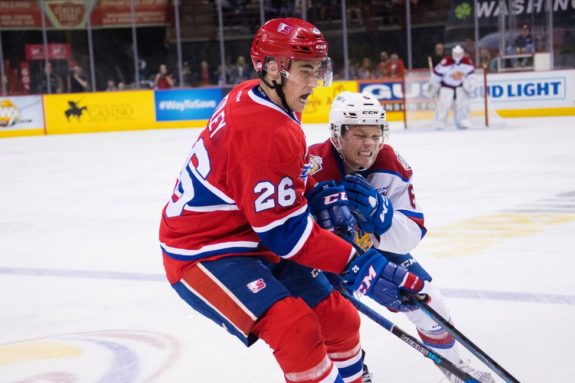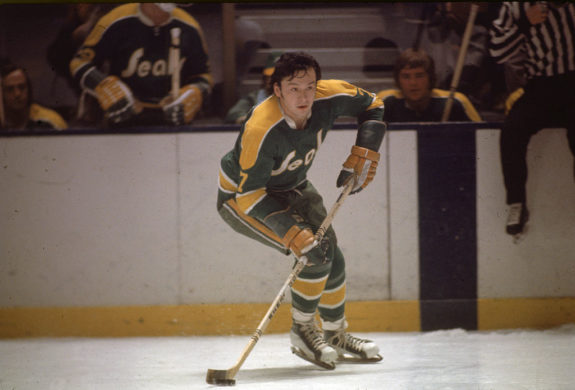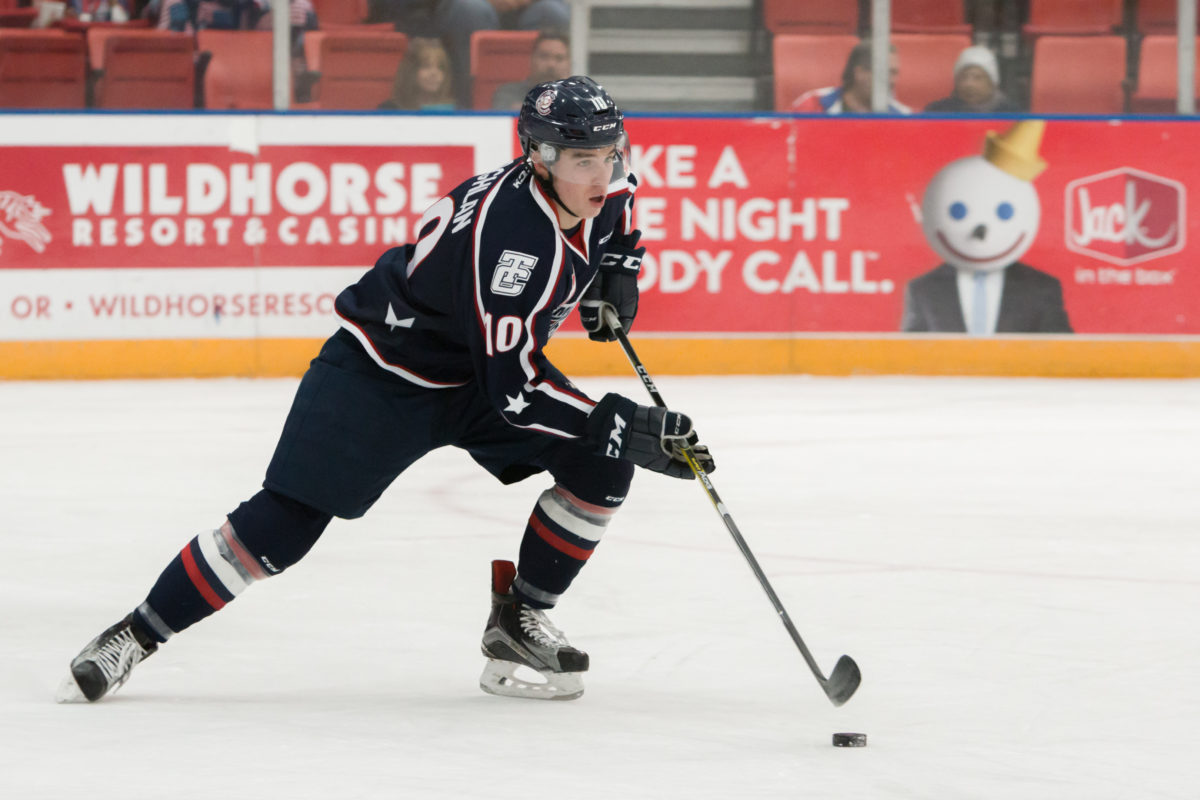I have always been fascinated by the concept of fan territories. When meeting someone from outside a major metropolitan region, I often ask which teams their community cheers for. I moved to the Pacific Northwest last year and am especially interested in observing the growth of the Seattle Kraken in my new community.
Considering the Pacific Northwest’s support for other regional sports teams, I can ascertain that locals will overwhelmingly favor the Kraken and contribute to a lively atmosphere at Climate Pledge Arena. That said, I think it’s interesting to examine how both geographical and cultural factors shape the new fan territory — in addition to augmenting enthusiasm in existing hockey communities within the region.
Geographical Factors
The majority of the Pacific Northwest — Washington, Oregon, and Idaho — is geographically closest to the Vancouver Canucks, but hosts other fan territories as well. For example, a large piece of Idaho and Montana is occupied by Calgary Flames territory; I have lumped Montana into this discussion as well, as at least the western portion is geographically closest to the Seattle Seahawks for NFL. Additionally, the Vegas Golden Knights and Colorado Avalanche occupy most of southern Idaho, while San Jose Sharks territory physically extends into southern Oregon.
Within the next few months, these geographical boundaries will recede significantly. Nearly all of Washington, except for the northernmost counties, will belong to the Kraken. The same applies to Oregon, except for maybe a southern county or two. A majority of Idaho and western Montana will follow suit, too.

Influenced by geography, broadcast markets also have a role in determining which team a fan follows. However, they do not always match up with the geographically closest team. For example, I live in North Idaho, which is Flames territory, but I can watch any Flames game through NHL TV. That said, the service blocks me from watching Golden Knights and Avalanche games.
Broadcast markets vary by sport as well, creating fans who may support different teams in different cities. For example, residents in Twin Falls, Idaho, will likely support the Seattle Mariners for baseball, but not the Portland Trailblazers like most Pacific Northwest residents; they may instead cheer for the Utah Jazz. These factors considered, some of the Pacific Northwest’s most southern communities, may cheer for other teams.
Cultural Factors
Cultural boundaries for these teams hold equal, if not more weight when determining where one fan base ends and where a new one begins. The most obvious cultural factor is cities that have rivaled each other in other major sports. A basketball or soccer fan in Portland may want nothing to do with the Kraken. Arguably the fiercest rivalry in Major League Soccer exists between the Portland Timbers and Seattle Sounders. The Trailblazers of the NBA battled the SuperSonics over four decades as well.
Cultural dynamics will also play a role in establishing fan bases in other Pacific Northwest sub-regions. For example, the nation’s second-fastest growing state, Idaho, has recently attracted a bevy of transplants from California. Boise, which will be geographically toward a Kraken territorial border, will likely be a melting pot of various NHL fan bases.

Lastly, people may establish their fandom based on their family’s allegiances or those of their friends. The NHL did not arrive in western North America until 1967 with the Los Angeles Kings and short-lived Oakland Seals. For the most part, the league’s footprint in the western US did not succeed and grow until the Wayne Gretzky trade of 1988. This being said, Pacific Northwest residents are less likely to adopt a hockey franchise based on whom their parents grew up supporting. However, some families may already be rooted in a non-regional sports market, like Boston or Chicago.
Pacific Northwest Hockey Communities
The Pacific Northwest hosts a few thriving hockey communities that will adopt Seattle as their preferred team. The Kraken’s presence will further augment hockey as a main sport in these cities and sub-regions.
First, the Northwest already hosts five of the Western Hockey League’s (WHL) clubs — two in metropolitan Seattle, two elsewhere in Washington, and one in Portland. The Trailblazers and Timbers are firmly baked into the Rose City’s identity, but nonetheless, many Portlanders have gained an appreciation for hockey by tuning into the Winterhawks.
Washington’s other two WHL communities will likely embrace their new NHL club as well. The Tri-City Americans are the longest established sports team in the southern Washington sub-region and are partially owned by former NHL players Olaf Kolzig and Stu Barnes. Carey Price, Brandon Carlo, and Chris Driedger are also Americans alumni.

Speaking from personal experience, Spokane & North Idaho is one of hockey’s best-kept secrets. Spokane, Washington’s second largest city, hosts crowds of over 10,300 for Chiefs games and, in 2011, put on the league’s first outdoor game. Additionally, the sub-region has excelled at developing talent from the area, including Tyler Johnson, Kailer Yamamoto, and Derek Ryan.
Lastly, while more of a football community, Boise has the opportunity to build Kraken allegiance. The Idaho Steelheads of the ECHL have played in the Gem State since 1997 and entertain crowds of up to 5,000.
Final Thoughts
Seattle and the greater Pacific Northwest make for a passionate new NHL market. The region already has pockets of existing hockey communities, and the void that the SuperSonics’ departure left in 2008 can partially be filled by a new Seattle team.
Nonetheless, I am curious to see how the Kraken fan base varies throughout the region. Perhaps my nearby city of Spokane will take on such a level of enthusiasm that the team opens a fan shop there. That said, as more people in my community sport the new logo, perhaps other transplants such as myself will come out of the woodwork to give them some friendly opposition.